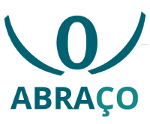
Functional Regression Analysis
Lectures | Apr 10, 2015
The aim of this presentation is to revise the functional regression models with scalar response (Linear, Nonlinear and Semilinear) and the extension to the more general case where the response belongs to the exponential family (binomial, poisson, gamma, ...). This extension allows to develop new functional classification methods based on this regression models. Some examples along with code implementation in R are provided during the talk. Lecturer: Manuel Febrero Bande, Univ. de Santiago de Compostela, Spain.
Goodness–of–fit tests for regression models: the functional data case
Lectures | Apr 10, 2015
In this talk the topic of the goodness–of–fit for regression models with functional covariates is considered. Although several papers have been published in the last two decades for the checking of regression models, the case where the covariates are functional is quite recent and has became of interest in the last years. We will review the very recent advances in this area and we will propose a new goodness–of–fit test for the null hypothesis of a functional linear model with scalar response. Our test is based on a generalization to the functional framework of a previous one, designed for the goodness–of–fit of regression models with multivariate covariates using random projections. The test statistic is easy to compute using geometrical and matrix arguments, and simple to calibrate in its distribution by a wild bootstrap on the residuals. Some theoretical aspects are derived and the finite sample properties of the test are illustrated by a simulation study. Finally, the test is applied to real data for checking the assumption of the functional linear model and a graphical tool is introduced. Lecturer: Wenceslao González-Manteiga, Univ. de Santiago de Compostela, Spain.
An introduction to the storage of experimental data in neuroscience
Lectures | Mar 31, 2015
A set of presentations and background material on strategies to store experimental neuroscientific data, digital questionnaires to collect and store experimental data and meta-data and tools to manage files. Lecturers: Profs. Kelly Braghetto (DCC-IME-USP) and Amanda Nascimento (DC-UFOP).
Minimum number of edges in a hypergraph guaranteeing a perfect fractional matching and the MMS conjecture
Publications | Mar 24, 2015
Vladimir Blinovsky
A NeuroMat Statistics and Neuroscience course to contribute to public school teaching
Newsletter | Feb 27, 2015
FAPESP's Research, Innovation and Dissemination Center for Neuromathematics (CEPID NeuroMat) has developed a series of activities and material to contribute to how public school teachers engage with Statistics and Neuroscience. The aim is to partner up and work along with teachers in a systematic effort to present concepts pertaining to Neuromathematics to teenagers. A special focus in this effort is given to introducing students to data setting and analysis.
| NeuroCineMat |
|---|
|
Featuring this week: |
| Newsletter |
|---|
|
Stay informed on our latest news! |
| Follow Us on Facebook |
|---|




